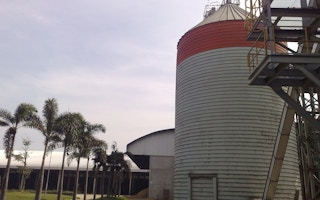Hilton Worldwide is expanding its carbon offset programme in Southeast Asia and adding three new renewable energy projects in the region to its list of beneficiaries.
Under its programme, started in October 2012, Hilton calculates the carbon generated at events hosted at its hotels in the region and offset it by purchasing carbon credits at no cost to customers through its partner, Climate Friendly.
It uses a proprietary LightStay™ Meeting Impact Calculator that measures the level of carbon emissions – based on energy, water, carbon, housekeeping, paper product usage, waste, chemical storage, air quality and transportation used by customers.
“
In the first 12 months of the Carbon Offset Programme in Southeast Asia we offset 7,200 tonnes of carbon emitted from events held in our properties.
William Costley, vice-president, Operations – Southeast Asia, Hilton Worldwide
Hilton said it has added four new hotels this month to the existing 13 hotels already taking part in the programme since its launch. The new hotels are DoubleTree by Hilton Sukhumvit Bangkok, Hilton Sukhumvit Bangkok in Thailand, and two hotels in Vietnam - Hilton Hanoi Opera and Hilton Garden Inn Hanoi.
The hospitality company will partly fund the Mungcharoen Biomass Project in Thailand which uses rice husk fuelled combustion technique to generate electricity, powering up two local rice mills and contributing to the local power grid.
Two hydropower projects in Indonesia and Vietnam will also be added. The Musi Hydro Project in Sumatra is a 210 MW run-of-river hydropower plant exporting 1,140,000 megawatt-hour of clean energy to the grid . The Song Ong Small Hydro Project in Vietnam’s Ninh Thuan province feeds 40,000 MWh of clean electricity each year into the national power grid, reducing carbon emissions by 21,500 tonnes per year and improving electricity supply in the region, Hilton said in a statement.
“In the first 12 months of the Carbon Offset Programme in Southeast Asia we offset 7,200 tonnes of carbon emitted from events held in our properties,” said William Costley, vice-president, Operations – Southeast Asia, Hilton Worldwide. Costley said this is well beyond the company’s 6,000 tonnes target. The 7,200 tonnes of carbon emitted is measured against 758 economy class flights around the world.
In 2012, the company said it saved US$253 million in utility cost through a 12.8 per cent reduction of carbon output, a 12.2 per cent reduction in energy use, a 24.9 per cent reduction of waste input and a 10.2 per cent reduction in water use.
Hilton has issued its second corporate responsibility report in April 2013 and has applied Global Reporting Initiative standards, but is yet to employ third-party assurance to evaluate its processes for its future reporting plans, according to its website.
“As we expand this programme to include new sustainability projects and more hotels in Southeast Asia, we stay committed to creating shared value both for our business and society,” added Costley.
In Asia, Hilton also supports the Borneo Rainforest Rehabilitation Project which aims to restore the rainforests of Sabah, Malaysia and grow the habitable area for wildlife such as orang-utans, sun bears, gibbons, pygmy elephants and the critically endangered Sumatran Rhino.

















